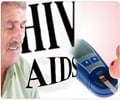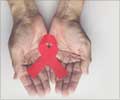Recent research has found that breast milk has the ability to protect babies from getting infected with HIV.

"Even though we have anti-retroviral drugs that can work to prevent mother-to-child transmission, not every pregnant woman is being tested for HIV, and less than 60 percent are receiving the prevention drugs -- particularly in countries with few resources. There is still a need for alternative strategies to prevent mother-to-child transmission, which is why this work is important," study senior author Dr. Sallie Permar, an assistant professor of pediatrics at Duke University.
The protein called as Tenascin-C or TNC has the ability to fight germs. The researchers came to this conclusion after testing samples of breast milk from uninfected women to check if could effectively tackle HIV strains.
"TNC is a component of the 'extracellular matrix' that is integral to how tissues hold themselves together," Permar said. "This is a protein involved during wound healing, playing a role in tissue repair. It is also known to be important in fetal development, but its reason for being a component of breast milk or its antiviral properties had never been described."
Dr. Barton Haynes, director of the Duke Human Vaccine Institute, added: "The discovery of the HIV-inhibiting effect of this common protein in breast milk provides a potential explanation for why nursing infants born to HIV-infected mothers do not become infected more often than they do."
Advertisement













